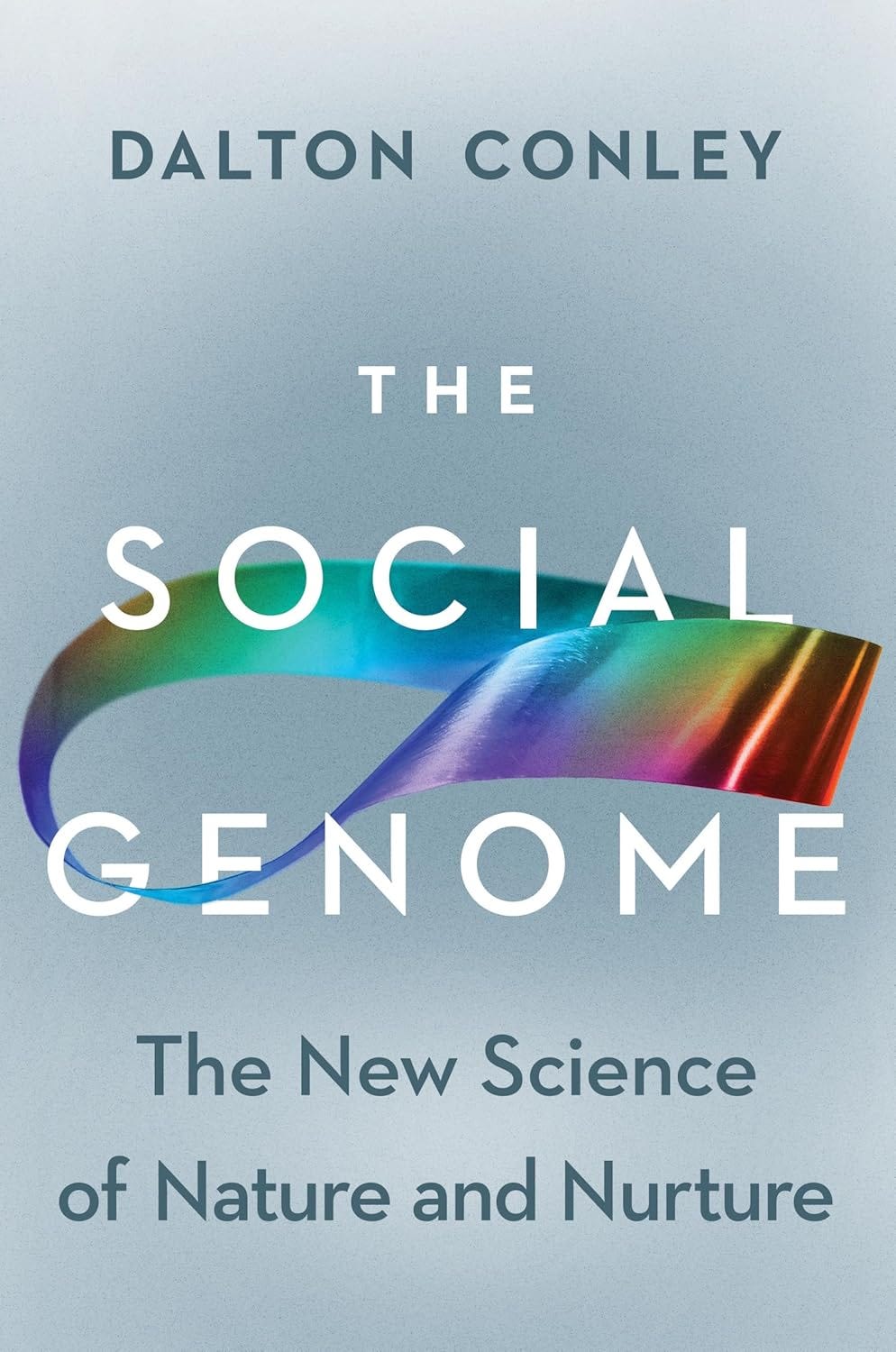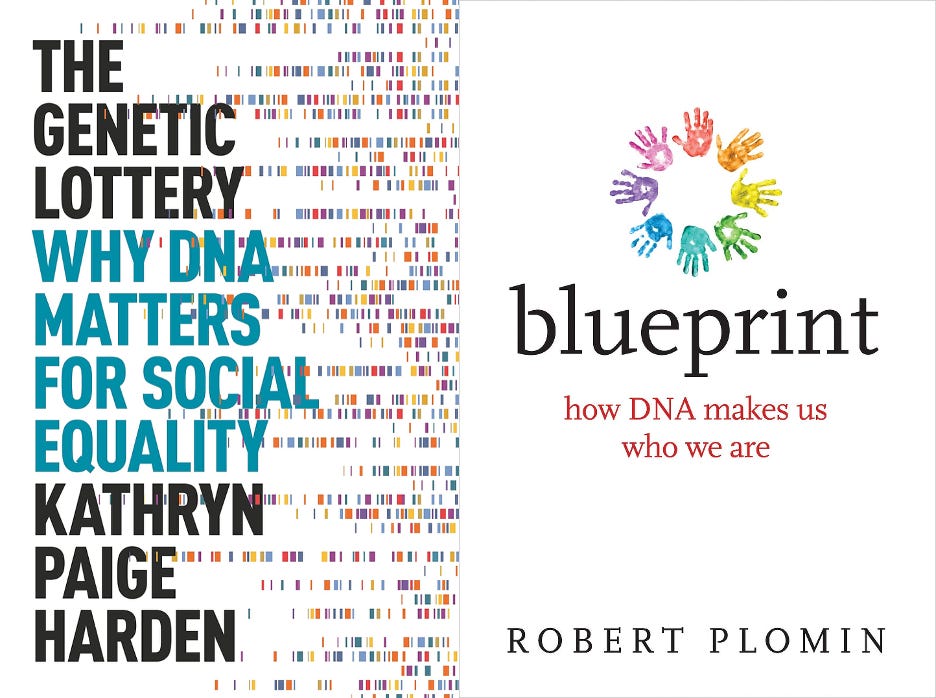Tl;dr – This is a fine popular book on the power of modern genome analysis – emphasis on “popular” in style – but I think it over-promises and praises the predictive power of polygenic scores.
I learned about the field of behavioral genetics early in graduate school. I also quickly learned that the “everything is heritable” narrative, while true, has also led to a lot of missed nuance in the popular science communications of behavioral genetics.
I found it quite surprising then that some of that communications carelessness came through in The Social Genome: The New Science of Nature and Nurture by Dalton Conley, who is the self-proclaimed founder of the field of social genomics.
The Social Genome is, to be fair, not a bad book. It’s written in a demonstrably popular style, full of analogies and oversimplified explanations. But for someone completely new to the concepts of behavioral genetics, it’s a very helpful book. It covers the basics of heritability; what active, passive, and evocative heritability is; the “nature of nurture” and the like.
But, like Robert Plomin, Conley is decidedly on the bandwagon about the predicative revolutionary utility of polygenic scores (PGIs) – even describing it as an “X-ray” machine. Now, PGIs are an incredible development. We can assess an entire genome and compile the hundreds or thousands of single nucleotide polymorphisms, or SNPs, that are significantly correlated with a trait of interest, and create a score – the PGI for that trait. In large samples we can understand that relatively higher or lower scores on a trait can interact with other scores or environmental conditions to predict traits, behaviors, and more.
But the key is that PGIs function most usefully at a population level. Like all inferential statistics, it’s rather messy using such scores – whether it’s a PGI or other standard measure – to predict an individual’s outcome. I understand why Conley is so focused on PGIs. As a sociologist he is likely primarily focused on social and population level outcomes. The biggest misunderstanding with behavioral genetics, though, is the very not straight line from individual to population inferences in this research area. One that I don’t think Conley is careful enough about.
I was also surprised that this book was published just this year if I’m being honest. Robert Plomin, truly one of the founders of behavioral genetics, published essentially the same book back in 2018. A book that also oversells PGIs but one that gives a better, more accurate overview of the basics of behavioral genetics.
One may argue that this book is different because of the social equity undertones. But again, that isn’t new either. K. Paige Harden, the foremost modern expert on the social justice implications of genetic research, published The Genetic Lottery back in 2021. Both of these I’d recommend instead of The Social Genome.
Reader poll
Published: March 2025
Publisher: W. W. Norton & Company
Format: Hardcover
If you think this sounds interesting, bookmark these other great reads:
The Genetic Lottery: Why DNA Matters for Social Equality (2021) by Kathryn Paige Harden
Blueprint: How DNA Makes Us Who We Are (2018) by Robert Plomin
You might also like…
Your Ultimate Book Guide to the Nature vs. Nurture Debate
What determines who we are? Is it our genetics or how we were raised? The “nature vs. nurture” debate has been foundational in psychology for the last century. But advancements in our understanding of genetics and heritability, especially in the last decade has radically transformed what we know about how both nature and nurture contribute to who we bec…








Great review, thank you. I'm interested in DNA and heading to the bookstore to look for Blueprint. Thank you for the recommendation 😊
This is VERY interesting. I was under the impression that Conley was one of the people on the skeptical (or more careful) side of this research program, especially because of his training in Sociology and the way I have seen him interact with figures such as Charles Murray. I saw him as being closer on the spectrum to people like Eric Turkeimer.
I think I'm going to read this one side by side with Turkeimer's new book to get a sense of the truly skeptical (albeit maybe a bit too skeptical).
Both Conley and Plomin were recent guests on Converging Dialogues and iirc, Plomin's episode was the one that sounded more enthusiastic. He was still careful enough to emphasize:
"... population level statistics, applicable only to one population at a particular time..."